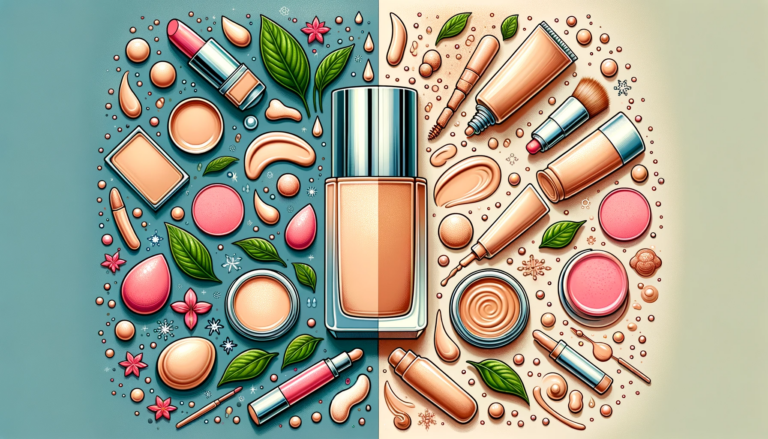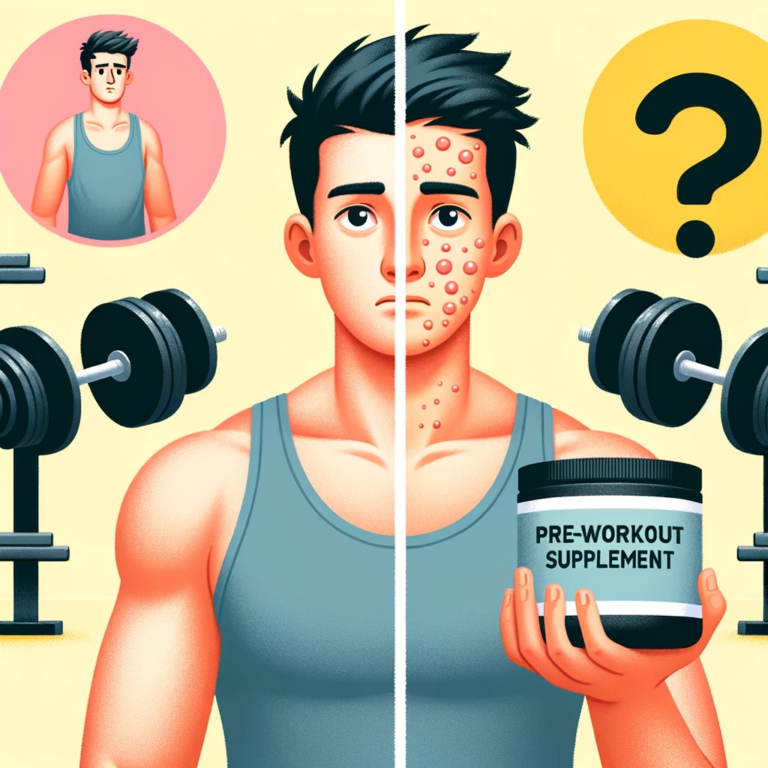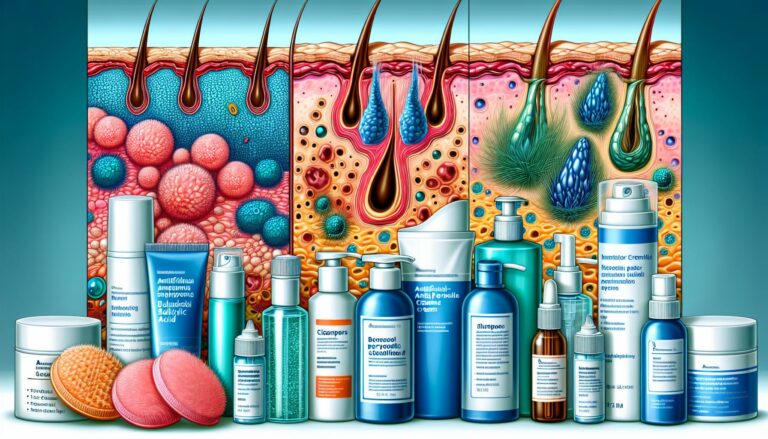Does CeraVe Cream Cause Acne?
Navigating the world of skincare can feel like walking through a minefield, especially when you’re trying to find a moisturizer that won’t leave you with a breakout.
CeraVe Moisturizing Cream has been a go-to for many, promising hydration without the heaviness.
But you’ve probably heard the rumors and are wondering, does CeraVe Moisturizing Cream cause acne?
Let’s dive in.

CeraVe Moisturizing Cream and Acne
When it comes to skincare, one size doesn’t fit all. CeraVe Moisturizing Cream, praised for its hydrating properties, has faced scrutiny over its potential to cause acne. This concern often arises from individual skin reactions rather than the product’s formula itself. Understanding your skin type is key when choosing any skincare product.
CeraVe’s formula is designed to be non-comedogenic, meaning it’s specifically formulated to not clog pores. However, every person’s skin is unique, and what works wonders for one might not for another. The cream contains ceramides and hyaluronic acid, ingredients known for their moisturizing benefits. Still, for those with extremely oily skin, it’s crucial to be cautious. The richness of the cream might be overwhelming, leading to unwanted breakouts.
It’s essential to patch-test any new skincare product before fully integrating it into your routine. Observing how your skin responds can prevent potential issues. If you notice any adverse effects, it’s wise to discontinue use and consult a dermatologist. Remember, healthy skin is about finding balance and understanding what your skin truly needs.
Ingredients in CeraVe Moisturizing Cream
When you’re diving into the world of skincare products, it’s crucial to understand what you’re applying to your skin. CeraVe Moisturizing Cream is praised for its blend of ceramides, cholesterol, and hyaluronic acid. These ingredients are key to restoring and maintaining the skin’s natural barrier. Ceramides help keep moisture locked in, making this cream a go-to for individuals with dry skin.
The cream also contains dimethicone, an emollient that works to soften and soothe the skin, creating a protective covering that helps retain moisture. Another significant component, petrolatum, acts as a barrier to prevent moisture loss. While these ingredients are beneficial for dry, irritated skin, their richness might not suit everyone.
Hyaluronic acid, on the other hand, is a powerhouse in skincare due to its ability to hold up to 1000 times its weight in water. This means it can dramatically boost the skin’s moisture content, reducing the appearance of fine lines and making the skin look more supple.
Reactions to skincare products can be highly individualized. It’s essential to patch-test and monitor how your skin responds to new products, especially if you’re prone to acne or have oily skin.
How CeraVe Moisturizing Cream Interacts with Different Skin Types?
Understanding How CeraVe Moisturizing Cream Interacts with Different Skin Types is crucial for its effective use. While it’s formulated for all skin types, reactions can vary based on individual skin characteristics.
For dry skin, this moisturizer can be a savior. Its blend of ceramides and hyaluronic acid helps restore the skin’s natural barrier and retain moisture, leaving dry skin feeling soft and nourished. However, if you have oily skin, exercising caution is key. The cream’s richness, while beneficial for combating dryness, might be too heavy, potentially leading to blocked pores and breakouts.
Mixed or combination skin requires a balanced approach. You might find that using CeraVe Moisturizing Cream on dryer areas works wonders without aggravating the oilier zones. A patch test is always recommended to gauge how your skin might react.
Those with sensitive skin will appreciate that the cream is fragrance-free and hypoallergenic, minimizing the risk of irritation. Nonetheless, monitoring your skin’s response is vital, as sensitivities can be unpredictable.
Remember, a product that works well for one person might not work the same for another. Listening to your skin and adjusting your skincare routine accordingly is the best strategy.
Does CeraVe Moisturizing Cream Cause Acne?
When tackling the myth of whether CeraVe Moisturizing Cream causes acne, it’s crucial to look at the facts and understand how skincare products interact with your skin. Fundamentally, CeraVe’s formula is designed to nourish and repair the skin barrier, not harm it. The key ingredients, such as ceramides and hyaluronic acid, are not only gentle but essential for maintaining healthy skin hydration levels.
However, everyone’s skin is unique. What works flawlessly for one person might not for another. Skin type, current condition, and environment all play significant roles in how a product affects you. For those with oily skin, the richness of the moisturizer might feel too heavy, potentially leading to blocked pores if not used in moderation or as part of a balanced skincare routine.
It’s also worth noting that CeraVe Moisturizing Cream is non-comedogenic, meaning it’s specifically formulated to not block pores. This is a critical point that dispels general concerns about it causing acne. Yet, due diligence in monitoring your skin’s response is advised. If you notice breakouts after starting any new skincare product, it’s wise to reassess and possibly consult with a dermatologist to pinpoint the cause.
Alternatives to CeraVe Moisturizing Cream for Acne-Prone Skin
If CeraVe Moisturizing Cream isn’t meshing well with your acne-prone skin, don’t worry. There are plenty of alternatives that might be a more suitable fit for your skincare routine. An effective moisturizer is key to any skin care regimen, especially for those battling acne. It’s crucial to find one that hydrates your skin without clogging pores.
La Roche-Posay Effaclar Mat is a popular choice. It’s specifically designed for oily skin. This product helps to target sebum at its source, so your skin stays matte and less prone to breakouts. With its sebum-regulating formula, it’s a great option for keeping your skin balanced and moisturized.
Another standout is Neutrogena Hydro Boost Water Gel. This lightweight, water-based formula is perfect for those who find traditional creams too heavy. It’s packed with hyaluronic acid to lock in moisture, ensuring your skin stays hydrated without any greasy residue. Plus, it’s non-comedogenic, meaning it’s formulated to avoid blocking your pores.
When exploring alternatives, always look for products labeled non-comedogenic. Pay attention to how your skin reacts over the first few weeks. Your skin’s response will guide you in tweaking your skincare routine for the best results.
Conclusion
Finding the right moisturizer for acne-prone skin can be a game-changer in your skincare routine. While CeraVe Moisturizing Cream may not be the perfect fit for everyone, exploring alternatives like La Roche-Posay Effaclar Mat and Neutrogena Hydro Boost Water Gel can lead to healthier, happier skin.
Remember, it’s crucial to listen to your skin’s response when trying new products. Adjusting your skincare routine to include options that hydrate without clogging pores could be the key to achieving the clear, glowing complexion you’re aiming for.






